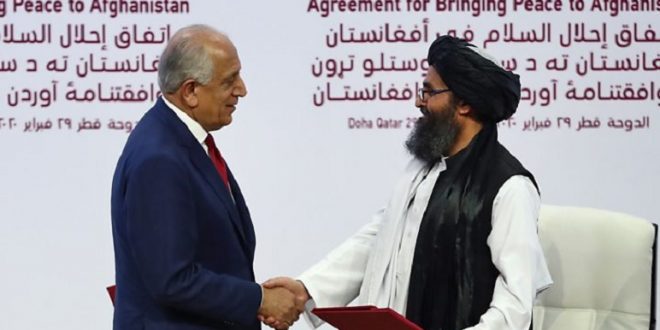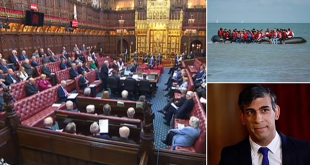On the almost successful completion of a weeklong reduction in violence, American and Taliban negotiators finally arrived at the moment to ink an accord aimed at putting an end to 19 years of hostilities in Afghanistan. February 29 will go down in the history as a memorable day for the Afghan nation as a long-awaited peace deal between the two sides has finally signed in Doha – will set the terms for the US to start withdrawing the more than 12,000 troops in return for commitments from the Taliban. A large number of foreign dignitaries and representatives of major global organizations have been invited to the deal signing ceremony – an essential step in efforts to end the conflict in Afghanistan. The outgoing week, which witnessed a watershed in the peace process, is going to successfully culminate in a landmark peace deal between the Taliban and the US. The deal carries with it hopes of a fall in violence in Afghanistan after decades of conflict and the opening of peace talks with the Afghan government, which has so far been excluded from the direct US-Taliban negotiations. Although it is only the first step and indeed a turning point in the whole efforts for peace, the road ahead to a comprehensive and sustainable peace in the country is still long, bumpy and complicated. The most crucial issue now is that how the Afghans would be able to iron out differences and hammer out a consensus in the next stage of the process, given the ordeal of sorting out issues with the Taliban through potential intra-Afghan talks. The critical question now is whether the insurgents would accept the Afghan democracy as is or strive to impose the Islamic Emirate regime one again? Everybody knows that the only way to find a lasting sustainable, peaceful solution to the conflict in Afghanistan is to have an intra-Afghan process, intra-Afghan negotiations, and an Afghan-led and Afghan-owned peace process. Meanwhile, in this next step, we need to reckon in the aspect that any political agreement sans the Afghan government also risks pushing the country to an anarchical situation just like the one the country experienced in the 1990s, after the fall of Najibullah regime in Kabul. To rule out this possibility altogether, as well as the uncertainty, which stems from ambiguity about the deal, the US authorities must have ensured that the agreement is conditions-bound. The US needs to retain some leverage to affect the course of future events in the face of untoward violations and incidents in the country – something that is still a significant concern in the minds of Afghans. As the details of the deal have not been disclosed as of writing this piece, the notion of US making the Afghan government release 5000 Taliban prisoners in exchange for 1000 prisoners by the Taliban as part of the deal has also got people apprehensive. It’s because people fear if the intra-Afghan dialogue slated for March doesn’t succeed, it will give the Taliban an upper hand to continue violence while having that many fighters set free to swell their ranks.

 Afghanistan Times
Afghanistan Times



